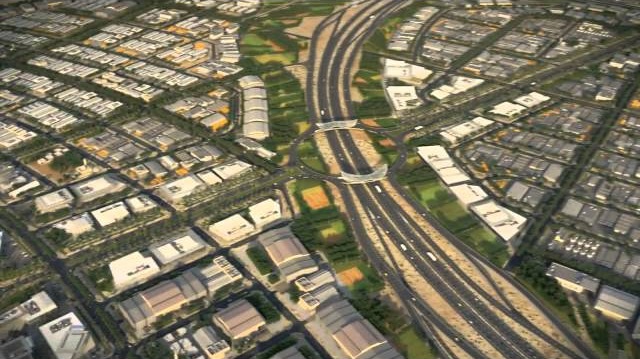HE Ahmad Al Sayed, Minister of State and Chairman of Qatar Free Zones Authority (QFZA) has announced that infrastructure for Qatar’s first free zone area–Ras Bufontas–is almost ready to move, and is set to be launched by September this year. And allocation of most of the land plots is almost complete.
The Minister also noted that things are moving at a very fast pace. QFZA has already put in place a team of experts in the top management who are already working on the ground and facilitating potential investors and companies to establish businesses in the free zone areas.
“Early investors to the upcoming free zone areas, such as Qatar’s first free zone area (Ras Bufontas), which is almost ready to go by September, will receive the maximum benefits,” Minister Al Sayed told DVZ, a leading German logistics publication in a video interview in Germany.
Commenting on the regulatory frameworks, the Minister added: “QFZA has already issued three sets of regulations which include an international regulatory system based on common English laws, and also providing very advance protection of investment to the investors.”
The pre-built properties at Ras Bufontas free zone, including the $110m ‘Oasis’ building which will serve as QFZA’s headquarters, are almost completed. Several international companies from Singapore, the UK, the US, South Korea, and China will soon start setting up their businesses in the free zone.
QFZA is also working aggressively to attract American and European companies, especially from Germany, Austria, and Switzerland. For this, the QFZA participated at the recently concluded Transport Logistics Exhibition in Munich.
Asked why is Qatar more keen to attract companies from Germany and its neighboring countries such as Austria and Switzerland, Minister Al Sayed said: “Qatari companies, including the Qatar Investment Authority, has invested a big part of its portfolio in the German market. We believe in German products and German companies. And since now we have the right platform we want to welcome German companies to operate from Qatar.”
He highlighted that given Qatar’s strategic geographical location these companies will be able to cater to a market size of over 2 billion people in the area. The Minister also highlighted the close economic and political ties between Qatar and Germany.
“The Amir H H Sheikh Tamim bin Hamad Al Thani, during his official visit to Germany last year, announced a program to invest $10bn in the German economy…We have a $3bn venture capital fund which aims to engage and capitalize SMEs to help them grow internationally, and also to welcome them to run businesses from Doha.”
Commenting on the impact of the blockade on Qatar, he said that the main victims of the siege were the families who were separated due to a difference in political opinion. That was the saddest part of it. But Qatar, both in social and economic fronts, have made a lot of achievements over the last couple of years.
“Qatar has emerged stronger than before. The blockade made us not only self-sufficient but also profitable as our companies focused and made extra efforts to meet the demand independently.”
Replying a question on the competition from other free zone areas in the region such as UAE’s Jebel Ali Free Zone and others, the Minister reiterated that competition is good for businesses to grow. Qatar has a lot of competitive advantages over others, such as cheap energy, best infrastructure, huge gas reserves and feedstock for the industries.
“It’s not only about opening a business in Qatar’s free zone areas or becoming a partner with one local company. It’s much bigger than that. Once you are here, you are part of Qatar Inc. It’s like partnering with our global champions such as Qatar Petroleum, Qatar Airways, QIA, Qatar National Bank, and many other such companies which invest billions of dollars around the world. In addition, it is also about partnering with our global portfolio such as Germany’s Volkswagen, Siemens, and many other such multinational companies.”
The Daily Star
03/07/2019
























































